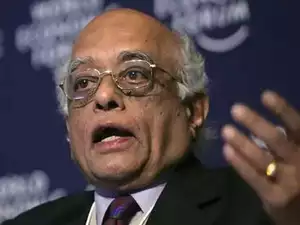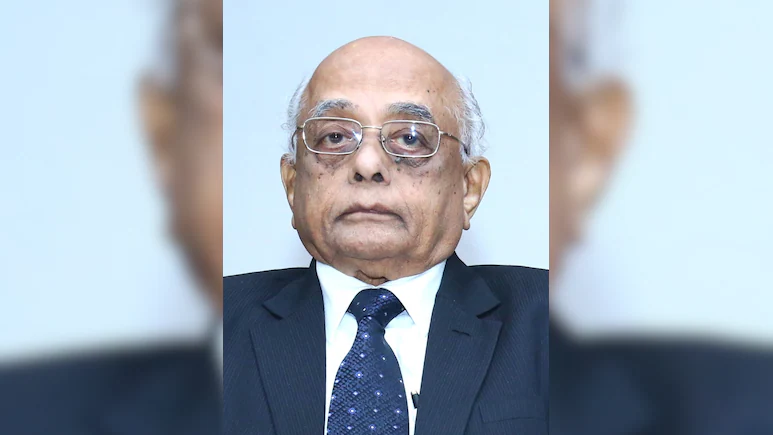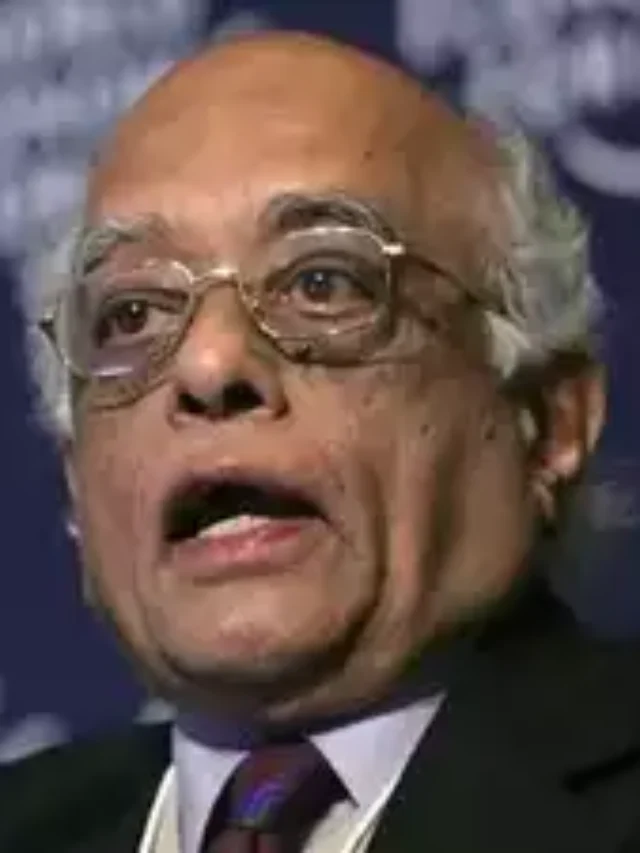
Dr. Chidambaram: Bidding Farewell to a Scientific Titan (1929–2024)
Table of Contents
On January 4, 2024, India mourned the loss of one of its brightest luminaries, Dr. Rajagopala Chidambaram. A physicist, statesman, and visionary, Dr. Chidambaram’s contributions to science and technology have left an indelible mark on the nation’s history. At 88, he passed away in Mumbai, leaving behind a legacy that will continue to inspire generations of scientists, strategists, and innovators.
His passing signifies not just the end of an era but a moment to reflect on the immense strides India has made in science and technology, many of which were catalyzed by his groundbreaking work. Dr. Chidambaram’s life was a testament to the power of scientific thought as a transformative force for national development.
The Architect of India’s Nuclear Power
Dr. R. Chidambaram is often hailed as the architect of India’s nuclear program—a title that encapsulates his pivotal role in shaping the nation’s strategic and scientific prowess. His work laid the foundation for India’s emergence as a nuclear power, firmly establishing the country’s position on the global stage.
In 1974, Dr. Chidambaram played a crucial role in India’s first nuclear test at Pokhran, codenamed “Smiling Buddha.” This test was not just a demonstration of scientific achievement but a statement of India’s determination to achieve self-reliance in nuclear technology. His leadership and expertise were once again evident during the Pokhran-II nuclear tests in 1998. As the chief coordinator, he ensured the success of these tests, which solidified India’s status as a nuclear-capable state.
These milestones were not mere feats of engineering; they represented a vision of India as a self-reliant, technologically advanced nation. Dr. Chidambaram’s contributions went beyond the laboratories, influencing policy and strategy to secure India’s place in the global arena.
A Pioneer in Research and Innovation
Dr. Chidambaram was not only a leader in nuclear science but also a pioneering researcher whose contributions transcended disciplines. His work in high-pressure physics, crystallography, and materials science earned him international acclaim. Through his groundbreaking studies, he advanced our understanding of the fundamental properties of matter under extreme conditions, laying the groundwork for modern materials science research in India.
His research extended into areas critical for technological advancement, such as superalloys and nanomaterials. These innovations had far-reaching implications, influencing fields as diverse as aerospace, defense, and energy. By fostering a culture of cutting-edge research, Dr. Chidambaram inspired countless young scientists and engineers to pursue careers in these transformative fields.
Championing Science Beyond the Laboratory
Dr. Chidambaram believed that science should serve society. This philosophy guided his efforts to apply scientific knowledge to address some of India’s most pressing challenges. His leadership extended into areas such as:
- Supercomputing: He spearheaded the development of India’s indigenous supercomputers, which revolutionized computational capabilities across industries. These advancements not only reduced dependency on foreign technology but also enabled groundbreaking research in fields like climate modeling, bioinformatics, and advanced engineering.
- National Knowledge Network: As a visionary, he conceptualized and drove the implementation of the National Knowledge Network (NKN), a nationwide initiative to connect research and educational institutions. This network has been instrumental in fostering collaboration, enabling data sharing, and driving innovation across academia and industry.
- Rural Development: Recognizing the transformative potential of technology in rural areas, Dr. Chidambaram championed initiatives like the Rural Technology Action Groups (RuTAG). These programs aimed to improve the quality of life in rural communities through the application of appropriate and sustainable technologies.
A Lifetime of Recognition and Service
Dr. Chidambaram’s illustrious career was marked by numerous accolades and leadership roles. Among his most notable positions were:
- Principal Scientific Adviser to the Government of India (2001–2018), where he provided strategic guidance on science and technology policies.
- Director of the Bhabha Atomic Research Centre (1990–1993), where he oversaw critical research and development projects.
- Chairman of the Atomic Energy Commission (1993–2000), during which he played a key role in advancing India’s nuclear program.
- Secretary of the Department of Atomic Energy, a role that positioned him at the helm of India’s atomic energy initiatives.
In recognition of his extraordinary contributions, Dr. Chidambaram received numerous awards, including the Padma Shri in 1975 and the Padma Vibhushan in 1999. These honors reflected not just his scientific achievements but also his unwavering dedication to national development.
A Legacy of Inspiration
Dr. Chidambaram’s legacy extends far beyond his tangible contributions. As a mentor, he nurtured a generation of scientists and engineers who continue to drive innovation in various fields. His emphasis on self-reliance, collaboration, and the ethical application of science has left an enduring impact on India’s scientific community.
The Department of Atomic Energy’s tribute to him as “a trailblazer, an inspirational leader, and a dedicated mentor” encapsulates the essence of his legacy. His life’s work serves as a reminder of what is possible when scientific ingenuity is paired with a vision for national progress.
In His Own Words
Dr. Chidambaram often emphasized the role of science in nation-building. One of his most quoted statements, “The key to a successful nation is its ability to harness scientific progress for national development,” underscores his belief in the transformative power of technology and innovation.
This philosophy guided his efforts to advance India’s strategic capabilities, foster scientific collaboration, and address societal challenges. His words continue to resonate, inspiring future generations to view science not merely as a pursuit of knowledge but as a tool for meaningful change.
A Final Tribute
As we bid farewell to Dr. R. Chidambaram, it is clear that his impact will be felt for decades to come. His work in nuclear science, materials research, and strategic policy has left an indelible mark on India’s scientific and technological landscape. More importantly, his vision of a self-reliant, scientifically advanced India continues to guide the nation’s aspirations.

Dr. Chidambaram’s legacy is a testament to the transformative power of science and the enduring spirit of innovation. His life’s work stands as a beacon of hope and inspiration for all who seek to harness the potential of science for the betterment of humanity.
In remembering him, we honor not just a scientific titan but a visionary leader whose contributions have shaped the course of India’s journey as a modern, self-reliant nation. Dr. Chidambaram’s life reminds us that with determination, innovation, and a commitment to excellence, the boundaries of possibility are limitless.


